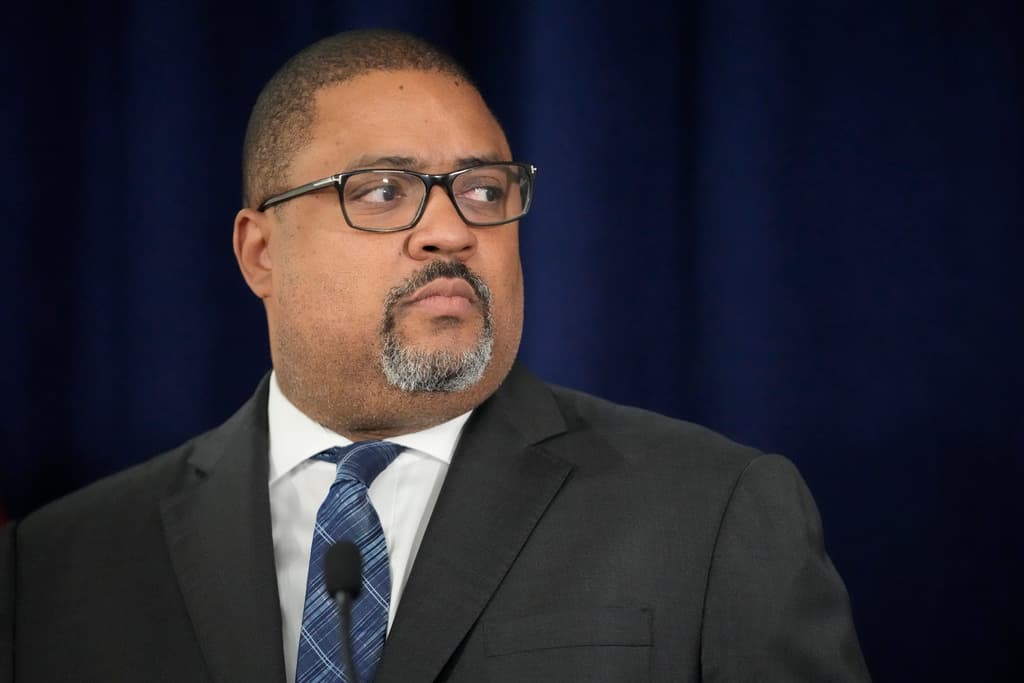The Lament of Fani and Alvin
State prosecutions of the 45th president may be beyond his pardon power but he could yet be immune under the Supreme Court’s latest ruling

Pour one out for the state prosecutors. District Attorneys Alvin Bragg and Fani Willis awoke this morning to a new legal landscape after the Supreme Court ruled that presidents are presumptively immune for their official acts, and absolutely immune for those duties that are “exclusively and preclusively” their purview. Only unofficial acts are fair game. Where, then, does that leave the cases launched against Trump from New York and Fulton counties?
In just as much trouble, we reckon, as the January 6 case brought by Special Counsel Jack Smith at the District of Columbia that precipitated the brouhaha over immunity in the first place. The difference is that Mr. Smith’s prosecutions were always haunted by the pardon power, which ordains that the president “shall have Power to grant Reprieves and Pardons for Offences against the United States.” That’s broad, but it doesn’t encompass state crimes.
Mr. Smith’s rush to try Trump before the election — a goal that the special counsel never utters, instead calling his interest “compelling” — was likely driven by the specter of a re-elected Trump applying the pardon power to himself. The racketeering case brought by Ms. Willis and the convictions secured by Mr. Bragg were in no such danger. The two elected Democrats could count on the sturdiness of their convictions — up, it turns out, to a point.
The latest earthquake from 1 First Street has already been felt at Centre Street. Judge Juan Merchan has delayed Trump’s sentencing for his hush money convictions to September 18 from July 11, but allows that it might not be “necessary” given the new ruling. Mr. Bragg acceded to the delay, but will argue that the convictions stem from “unofficial acts” undertaken in Trump’s capacity as a candidate. Judge Merchan earlier turned aside a similar challenge.
The 45th president’s attorneys, though, are emboldened. One, Will Scharf, took to CNN to remind of the high court’s ruling that acts traceable to the “outer perimeter of a president’s official responsibilities and duties” cannot be used as evidence to prove even chargeable private acts. Justice Amy Coney Barrett dissented on that head, but she did not carry the day. Mr. Scharf reckons that the high court ruling “absolutely” impacts this case.
Things are even more dire for Ms. Willis. Swaths of her indictment could be covered by what the high court reckons could be official acts. The portions that concern colloquies with Chief of Staff Mark Meadows and a Justice Department official, Jeffrey Clark, could be off limits if prosecutors cannot meet their burden of rebutting the presumption of immunity. DOJ interactions are “absolutely” immune, the Chief Justice wrote in re one Smith indictment.
The high court acknowledges that presidential outreach to state officials could be outside even the wide berth allowed for unofficial acts. That could mean that the effort of Trump and his camarilla to ask Georgia officeholders — like Secretary of State Bradley Raffensperger — whether they could find more votes could not be immune. So too could the so-called “fake elector scheme,” though Trump’s team is trying to define that as official.
We spoke to the legal sage Alan Dershowitz, who now reckons that there are “not going to be any trials before the elections” and considers it possible that the holding of Trump v. United States could reverse the conviction secured by Mr. Bragg. Mr. Dershowitz also notes that critics of the high court like Senator Schumer and Representative Alexandria Ocasio-Cortez themselves benefit from the formidable immunity of the Speech or Debate Clause.
The extension of presidential immunity to state prosecutions rhymes with the logic of that immunity in the first place. It is to protect what The Great Scalia called “the boldness of the president.” Chief Justice Roberts, while noting the chief executive “is not above” the criminal law, writes that the “Framers’ design of the Presidency did not envision such … burdens.” Such burdens are contrary to that design whether they come from federal or state courts.

